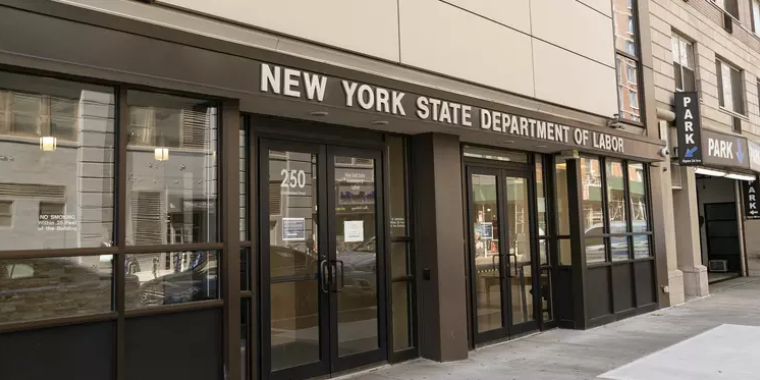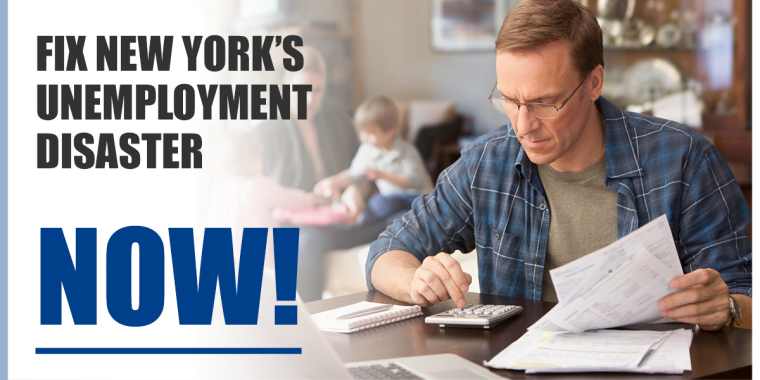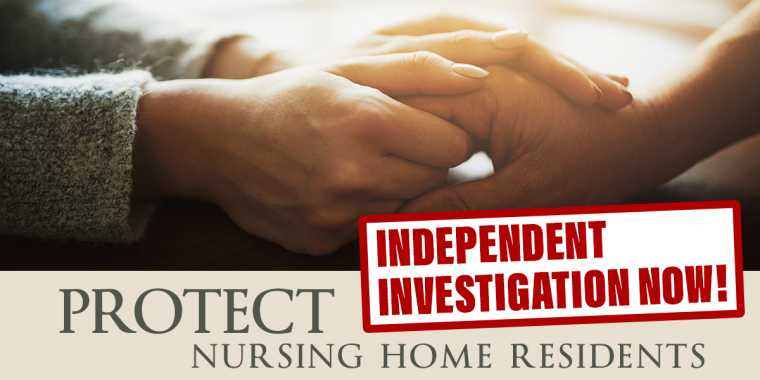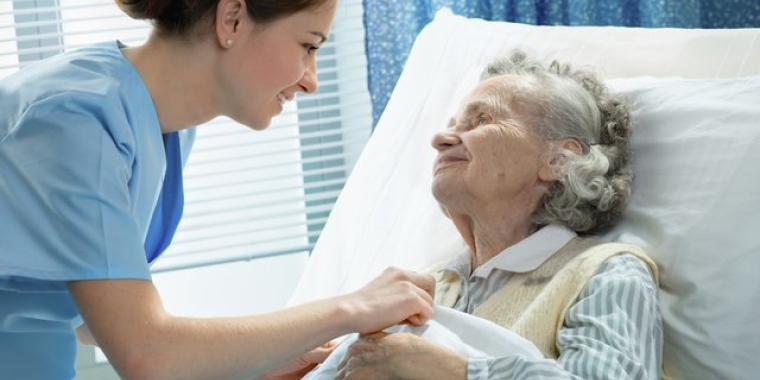
Summer Safety Information 2019
John J. Flanagan
May 28, 2019
-
ISSUE:
- Summer Safety
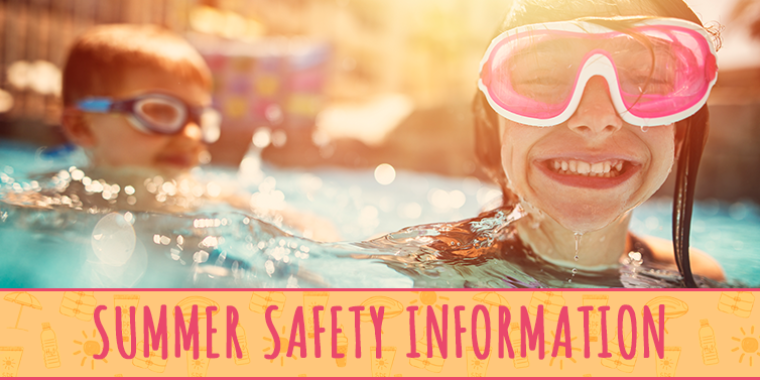
Living on Long Island provides all of us with some great opportunities to enjoy all that the summer season has to offer. From Jones Beach to the lighthouse in Montauk, we have some of the greatest beaches and recreational areas in the state and I urge you to take advantage of all Long Island has to offer.
As you enjoy the coming months, I wanted to provide you with some important summer safety information to make sure that the summer is as safe as possible. These easy-to-follow tips from experts are designed to help you prepare for almost any situation and I hope you will take advantage of them.
Please have a safe and enjoyable summer.
Senator John Flanagan
*************************
Important Tips & Links
Summer Safety Tips from American Red Cross
Heat Safety Tips from the New York State Department of Homeland Security
American Academy of Pediatrics Tips
New York State Department of Health Information on Mosquito and Disease
Information About Community Mosquito Spraying
Tips for Keeping Pets Safe During Summer from the Humane Society
Summer Pet Care from the Weather Channel
Pet Heat Safety From American Red Cross
General Water Safety Tips from the American Red Cross
Swimming Pool Regulations from the New York State Department of State
Camping Safety Information from the American Red Cross
Boating Safety Information Page
Long Island Convention and Visitor's Bureau
********************************************************************
Staying Safe During Hot Summer Days
This information can be used to protect you, your family and your neighbors.
Health officials are advising New Yorkers to be on the lookout for symptoms of heat stroke, heat exhaustion, heat cramps, sunburn and heat rash. Anyone is susceptible to heat-stress, but those who are at greatest risk include:
-Infants and children up to four years of age are sensitive to the effects of high temperatures and rely on others to regulate their environments and provide adequate liquids.
-People 65 years of age or older may not compensate for heat stress efficiently and are less likely to sense and respond to change in temperature.
-People who are overweight may be prone to heat sickness because of their tendency to retain more body heat.
-People who overexert during work or exercise may become dehydrated and susceptible to heat sickness.
-People who are physically ill, especially with heart disease or high blood pressure, or who take certain medications, such as for depression, insomnia, or poor circulation, may be affected by extreme heat.
-Visit adults at risk at least twice a day and closely watch them for signs of heat exhaustion or heat stroke. Infants and young children, of course, need much more frequent watching.
Stages of Heat-Related Illness (from the American Red Cross) - Heat-related illness usually comes in stages. The signal of the first stage is heat cramps in muscles. These cramps can be very painful.
If you are caring for a person who has heat cramps, have him or her stop activity and rest. If the person is fully awake and alert, have him or her drink small amounts of cool water or a commercial sports drink. Gently stretch the cramped muscle and hold the stretch for about 20 seconds, then gently massage the muscle. Repeat these steps if necessary.
If the victim has no other signals of heat-related illness, the person may resume activity after the cramps stop.
The signals of the next, more serious stage of a heat-related illness (often called heat exhaustion) include--
-Cool, moist, pale skin (the skin may be red right after physical activity).
-Headache.
-Dizziness and weakness or exhaustion.
-Nausea.
-The skin may or may not feel hot.
The signals of the late stage of a heat-related illness (often called heat stroke) include--
-Vomiting.
-Decreased alertness level or complete loss of consciousness.
-High body temperature (sometimes as high as 105° F).
-Skin may still be moist or the victim may stop sweating and the skin may be red, hot and dry.
-Rapid, weak pulse.
-Rapid, shallow breathing.
This late stage of a heat-related illness is life threatening. Call 9-1-1 or the local emergency number.
Here are some tips to protect yourself and those you care about:
Drinking Plenty of Fluids -- Increase your fluid intake, regardless of your activity level. Don't wait until you're thirsty to drink. Avoid alcohol and sugar-saturated drinks.
Replacing Salt and Minerals -- Constant sweating removes salt and minerals from the body. If you're outdoors or exercising replace your fluids with two to four glasses of cool, non-alcoholic fluids each hour. A sports beverage can replace the salt and minerals you lose in sweat. However, if you are on a low-salt diet, talk with your doctor before drinking a sports beverage or taking salt tablets.
Wear Appropriate Clothing and Sunscreen -- Choose lightweight, light-colored, loose-fitting clothing. In addition to pain and skin damage, sunburn disrupts your body's ability to cool itself and causes a loss of body fluids. If you're outdoors, wear a brimmed hat, sunglasses, and put on sunscreen of SPF 15 or higher 30 minutes prior to going out. Reapply it according to the package directions.
Schedule Outdoor Activities Carefully -- If you're outdoors, pace yourself. Try limiting your activity to morning and evening hours. Look for shaded areas to keep cool. Stop activity when your heart pounds, you begin gasping, or feel faint or nauseous.
Stay Cool Indoors -- Stay indoors in an air-conditioned area whenever possible. If your home does not have air conditioning, go to a public area that does (shopping mall, public library) A few hours spent in air conditioning can help your body stay cooler when you go back into the heat. Call your local health department to see if there are any heat-relief shelters in your area. While electric fans may provide comfort, when the temperature is in the high 90s, fans will not prevent heat-related illness. A cool shower or bath or moving to an air-conditioned place is a better bet. Limit the stove and oven use to keep a cooler temperature in your home.
Use a Buddy System -- When you're out in the heat, watch the condition of your companions and have someone do the same for you. If you're 65 years of age or older, have a friend or relative call to check on you twice a day during a heat wave. If you know someone in this age group, check on them at least twice a day.
Don't leave the vulnerable in cars! -- Even in cool temperatures, cars can heat up to dangerous temperatures very quickly. Even with the windows cracked, interior temperatures can rise almost 20 degrees within the first 10 minutes. Unattended children and pets are at risk for serious heat-related illnesses or even death.
Remember, even young and healthy individuals can succumb to heat if they participate in strenuous physical activities during hot weather. Air-conditioning is the number one protective factor against heat-related illness and death.
SUN PROTECTION
Whether working in the garden, mowing the lawn, or swimming at the beach, it’s easy to forget the dangers of prolonged exposure to the sun. Most people wear sunscreen when participating in outdoor activities in the summer; however, experts recommend using sunscreen on a daily basis. Sunscreens containing a sun protection factor (SPF) of 15 or higher are suggested to protect against harmful burns, which can contribute to skin cancer.
Make sure to apply sunscreen 15-20 minutes before being exposed to the sun, as this maximizes the effectiveness of the sunscreen. Always drink plenty of liquids, whether working or playing, and it’s never a bad idea to wear a hat to keep the sun off your face. The summer is a great time to enjoy the sunshine, but remember, there can be too much of a good thing.
DUE TO THE EXPECTED INCREASE IN ELECTRICITY DURING THE SUMMER MONTHS, PLEASE USE THE TIPS BELOW TO STAY COOL AND CONSERVE ENERGY:
-Close blinds or shades on sunny windows, but open windows to take advantage of natural ventilation when conditions permit – especially during cool morning or evening hours.
-Set the air-conditioning thermostat just a few degrees higher. Each degree above 75° F saves you 3 percent of the energy used to cool your home.
-Turn off all lights and electrical appliances in unoccupied areas.
-Run household appliances such as dishwasher and dryers at "off-peak" (after 7 p.m.) hours. These would include dishwashers, dryers, pool pumps and water heaters.
-Keep doors closed when it is hotter outside than inside. Open them up again in the evening or morning when it is cooler outside.
-Turn it off – Save electricity and reduce waste heat by shutting off lights and home electronics, especially computers, while not in use. Televisions, cable television boxes, computers, cell phone chargers and other electronics give off far more waste heat than you might imagine.
CLICK HERE TO LEARN EFFECTIVE WAYS TO STAY COOL WHILE SAVING ENERGY
CLICK HERE FOR ADDITIONAL SUMMER ENERGY SAVING TIPS
